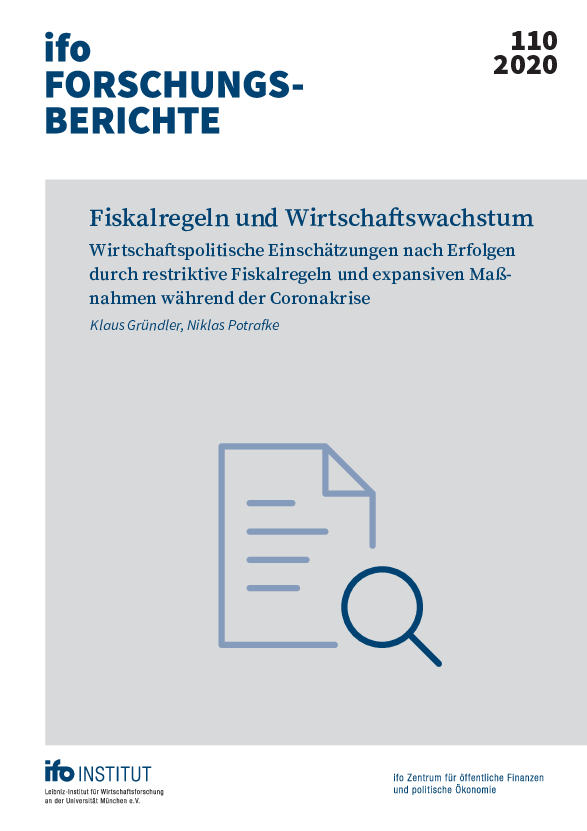Fiskalregeln und Wirtschaftswachstum - Wirtschaftspolitische Einschätzungen nach Erfolgen durch restriktive Fiskalregeln und expansiven Maßnahmen während der Coronakrise
ifo Institute, Munich, 2020
ifo Forschungsberichte / 110

The corona crisis currently requires expansionary fiscal policy. This strategy is undisputed. Germany has the necessary scope for this expansionary fiscal policy because fiscal rules such as the German debt have laid the foundation for a sustainable budget policy. These margins can now be used to alleviate the current recession.
The real economic effects of fiscal rules are intensively discussed. On the one hand, fiscal rules may trigger positive growth effects by reducing public debt and creating a sustainable and stable government budget. On the other hand, if fiscal rules lead to a reduction in public investment, economic growth will be slowed down. Our new study shows that fiscal rules have not declined economic growth - provided that they were adopted in the constitution. This applies to both national and regional fiscal rules.
Germany must return to a sustainable long-term fiscal policy in compliance with the debt brake once the crisis has been overcome. The corona crisis illustrates how abrupt crises can occur that would not be manageable from a fiscal policy point of view if inadequate provision was made. The positive budgetary situation of the past years also hides the fact that the demographic change will lead to a drastic change in the relationship between employees and pensioners in the near future. This change will pose major challenges for the federal budget.